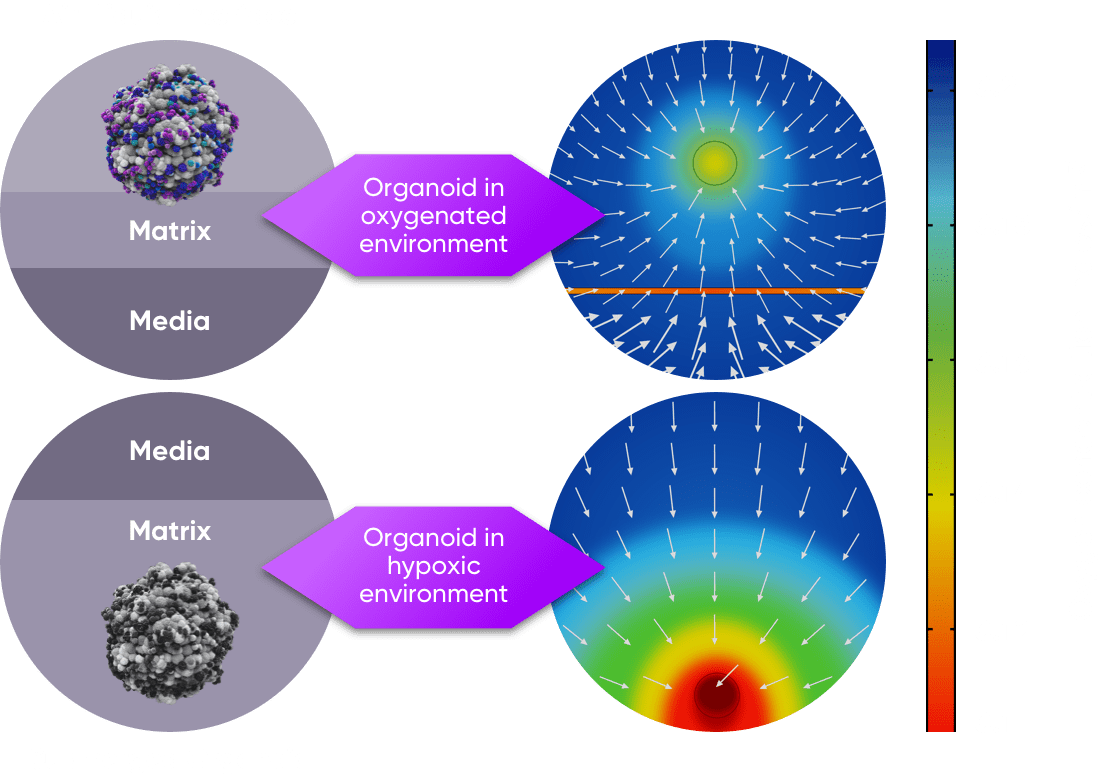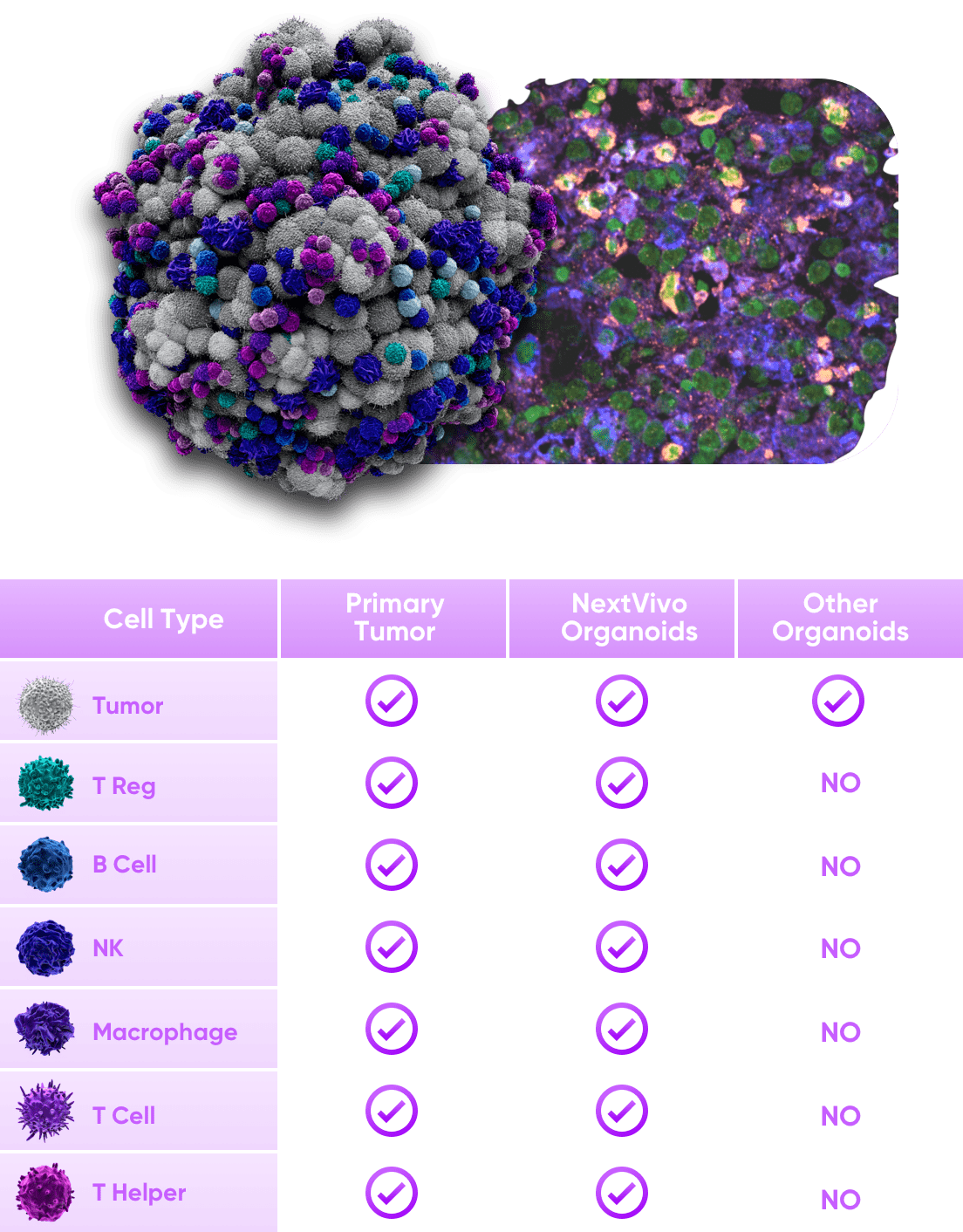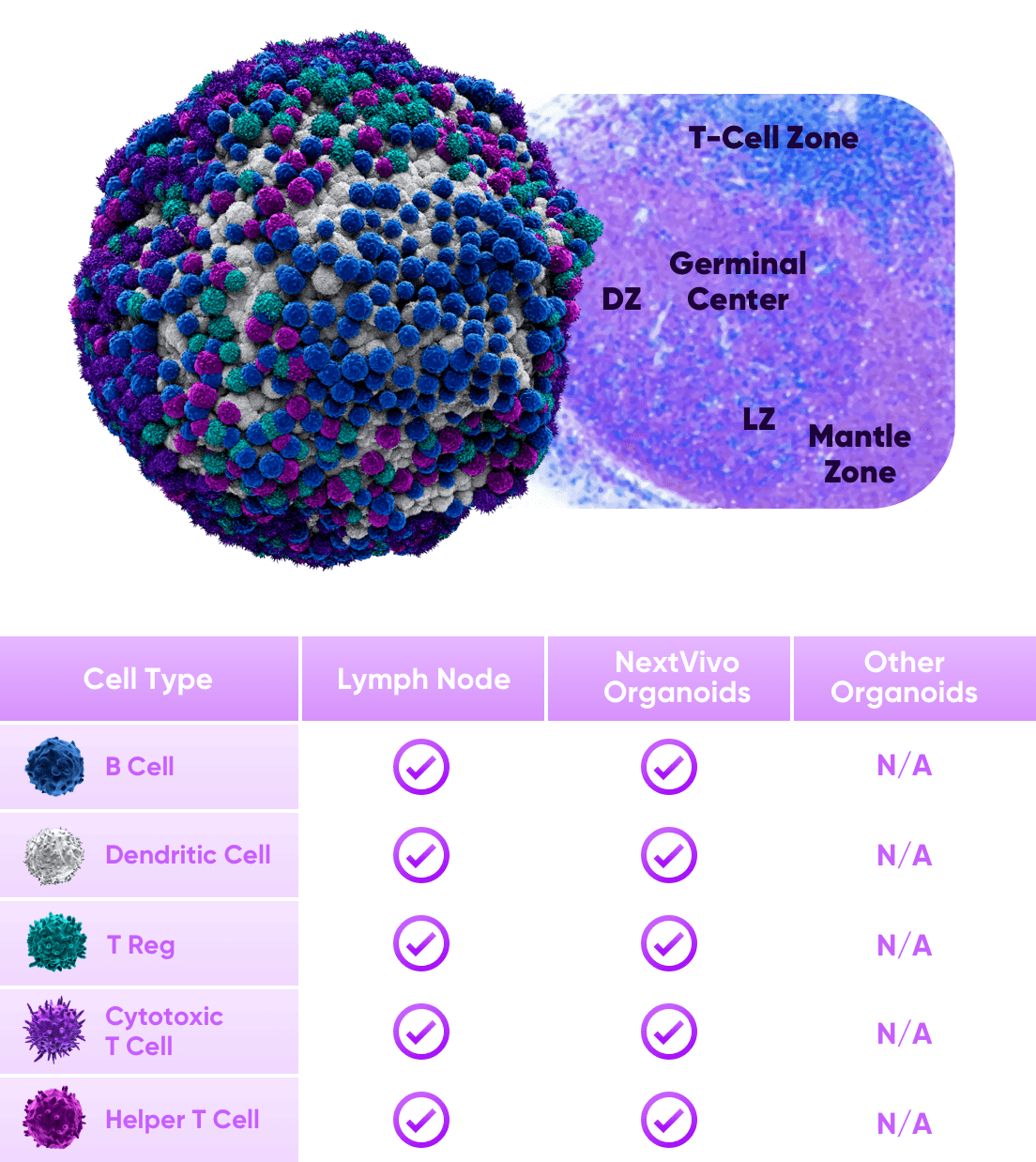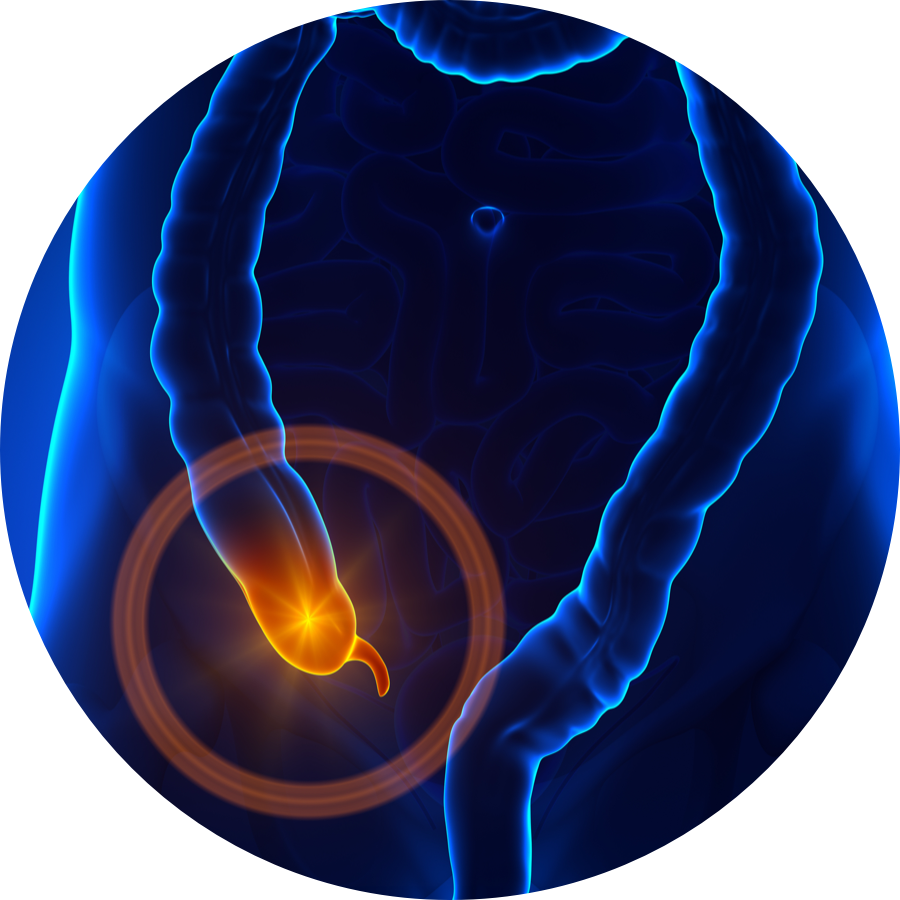Air-liquid interface organoid technology
The growth of tissue organoids in 3D using an air-liquid interface overcomes critical barriers that have prevented other organoid technologies from growing physiologically relevant models of disease.
Other organoid technologies require cells to be grown in highly hypoxic environments in which only limited subsets of cell types are able to survive. ALI allows cells to be directly exposed to air, which provides critical oxygen enabling survival of diverse cell types, including immune cells.


NextVivo tumor organoids grow all key immune cells in the tumor microenvironment
ALI technology enables creation of organoids that retain the complex physiological spatial structure of a tumor sample, including the full repertoire of immune cell types found in the microenvironment.
Our system provides the first physiologically accurate functional model of the interactions between tumor cells and immune cells in an individual patient sample.
NextVivo lymphoid organoids replicate the key aspects of antibody production
Our lymphoid organoids recapitulate the structure of germinal centers — the sites of antibody production — and model the key steps of antibody generation, including somatic hypermutation, affinity maturation, class switch recombination, and plasmablast differentiation.
Our system provides the first model of the human adaptive immune response in a dish.


NextVivo organoids have applications to autoimmune and infectious diseases
We are developing organoids enabling the study of autoimmune and infectious diseases with high unmet clinical needs. Existing in vitro and animal models do not accurately represent the pathology of many of these diseases nor predict their response to therapeutics. We believe our organoid models can be leveraged throughout preclinical to clinical drug development to bring more effective therapies to patients faster. Contact us to learn more about our programs in these areas.